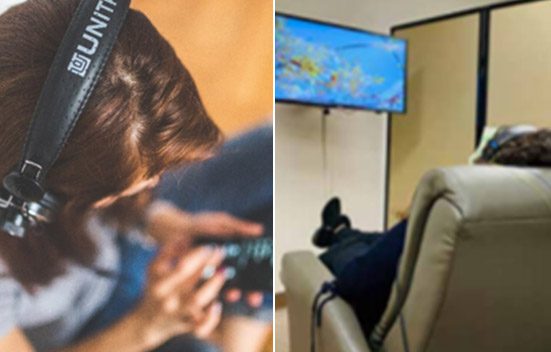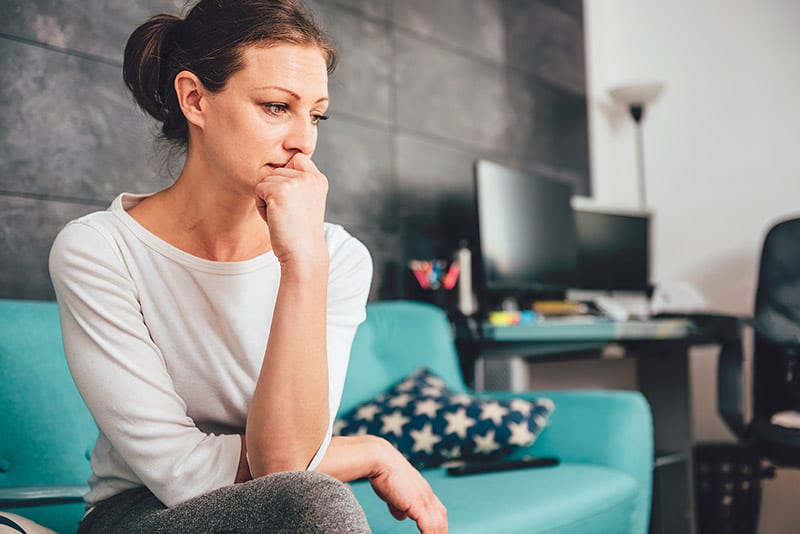Fall is here now and with it our anxiety about the health of our loved ones and how to manage this pandemic time!
If you have kids, you worry about their success at school or in life,
If you are a business owner, you are concerned about reaching your end of the year’s goals with the pandemic restrictions and complications.
For all of us how to be creatives to handle the end of the year holidays.
No time has been as unsure as it has for all of us these last 2 years!
Even before the pandemic, anxiety/stress in our modern society is a common and disruptive force in our lives!
Imagine, +40 million adults are affected by stress/Anxiety in America every single day!
According to the American Medical Association, stress contributes to 75% of all cases of illness in the United States. According to the World Health Organization, depression, anxiety, and other related mood disorders now share the dubious distinction of being the most prevalent causes of chronic illness.
Feeling constantly worried, incredibly stressed, and restless can affect your life, your health, your experience and impact your whole family and those that are close to your heart.
You might be experiencing
– anxiety, fears, anger, sadness, depression, maladjustment expressed in hyperactivity or procrastination, irritability, or inability to maintain control and personality disorders, these Mental health problems are related to Stress/Anxiety.
– Heart disease, high blood pressure, abnormal heart rhythms, heart attacks, and stroke. These Cardiovascular diseases are often a consequence of Stress/Anxiety.
The following physical symptoms of stress/anxiety include:
- Low energy.
- Headaches.
- Upset stomach, including diarrhea, constipation, and nausea.
- Aches, pains, and tense muscles.
- Chest pain and rapid heartbeat.
- Insomnia.
- Frequent colds and infections.
- Loss of sexual desire and/or ability.
However, it is important to remember that you can overcome these illnesses and take better care of them before they become chronic diseases! At the same time. remember “it is never too late!”. Neurofeedback can be an excellent complementary tool to your doctor’s recommendations.
We want to Help
Today, at InnerOptimal, we’d like to share with you some tips for dealing daily with Stress/Anxiety.
A big part of anxiety can be overthinking the things that you feel anxious about.
Don’t overthink it
Avoiding thinking through the cause of your anxiety is common, but counter-productive. Instead, define what you are anxious about. Lay before you the issues and solutions for overcoming them.
Seek Clarity
Write it all out, sometimes thoughts can appear to be clear but upon explaining our ideas to others or writing them we achieve a sharper understanding of our thoughts.
By writing your fears down, you will realize that you are not as anxious about them as much as you might think.
Understanding, and then overcoming anxiety boils down to a simple idea.; Don’t be less afraid, be braver. This may seem like frustratingly simplified semantics, but it is true, nonetheless.
Take note: You don’t overcome anxiety by being less afraid of the things that trigger your stress or anxiety, you overcome it by becoming more resilient.
Social Anxiety
There are simple ways of doing this. Today, let’s talk about social anxiety.
If you have social anxiety, it can be incredibly difficult to overcome because every time you are in a situation where you could learn to overcome it your anxiety kicks in. Instead, you can try to practice smaller details with someone you already know well such as shaking him/her hand with a firm grip. Saying your name loud enough for the person to hear. When these are mastered, you can add looking the person in the eye.
your anxiety kicks in. Instead, you can try to practice smaller details with someone you already know well such as shaking him/her hand with a firm grip. Saying your name loud enough for the person to hear. When these are mastered, you can add looking the person in the eye.
This sort of practice can cause you to improve because they are physical and thus through practice become embedded right into the body. Then when you are faced with a newcomer the practice kicks in as a natural response.
You Don’t Have to be the Center of Attention
Another example of this concept comes into play as another way to deal with social anxiety, which is listening. If you have social anxiety or simply want to become a better communicator/conversationalist, then you must give the other person your complete attention. If you pay less attention to yourself then your automatic social skills will come to the surface. On top of that people love when you pay attention to them because it hardly ever happens.
Of course, practicing and articulating your sources of anxiety aren’t the only things you can do, proper sleep and nutrition can significantly improve your day.
Energy is Confidence
A big breakfast upon waking can seriously help. You fasted all night. If you load yourself cognitively or physiologically in the morning, your brain, stressed, will produce insulin, it will take all the blood sugar out of your blood, which dysregulates your metabolism for the rest of the day. You’ll be anxious.
It’s surprising, but a big breakfast can seriously help, however, it doesn’t help everyone. To test this, try eating something substantial. Wait ten minutes and see if you feel any better. This will allow you to see if your anxiety is connected to low blood sugar, which is quite common.
Your anxiety can be also associated with being irritable and foggy in your thinking. Small naps for ten to fifteen minutes can help massively. Try to wake up on a regular schedule. Make sure you wake at the same time.
Tips Summary:
- Articulate what causes your anxiety.
- Practice physical techniques that can help you strengthen yourself.
- Eat a large breakfast, carb light, fat, and protein-heavy. This may help people whose anxiety is related to blood sugar levels.
- Wake up at the same time every day, take ten-minute naps throughout the day.
Neurofeedback is Here to Help
Today we have tools to de-stress/overcome anxiety forever. See what Neuroscientist, Erman Misirlisoy, Ph.D. is stated: “Fear, stress, and anxiety are some of the biggest dangers of mental health […]. Today we can find ways to de-stress with tools such as self-awareness and neurofeedback training”.
At InnerOptimal we use both to help you. Give us a call so we can talk about your issues 760.633.3328 or book a complimentary appointment online: “MyOptimalBrain.com”
Next month we can address other kinds of anxiety with appropriate tips. Let us know what subject is the most relevant for you.
Want to see testimonials of the amazing results that people receive? Click here to visit our Youtube channel.
Our mission is to help as many people as possible! Do not hesitate to communicate with us and to share this Newsletter if you liked it!
Dr. Danielle, Ari Steffens





